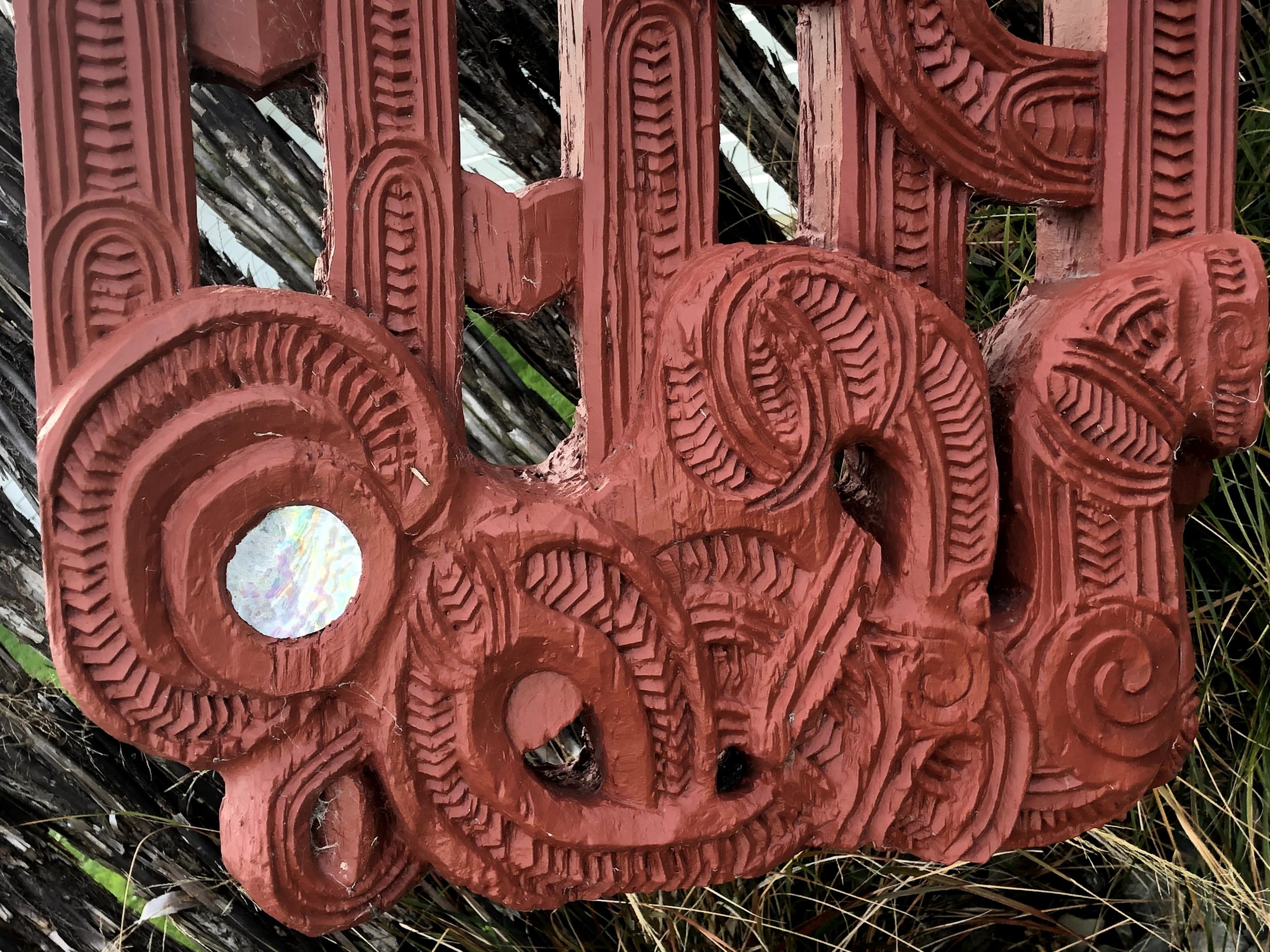
Tō mātau tikanga
me kawa
Pōhiri
A pōhiri, or ritual encounter will be conducted by the marae community to welcome and acknowledge, events, important guests of the marae or first-time visitors (waewae tapu). The pōhiri may take place on the marae ātea (in front of the Whare nui) or inside the Whare nui. The pōhiri will be conducted in te reo, the Māori language and the kawa / tikanga for Hau Ariki Marae (which in general follows that of Wairarapa marae).
The pōhiri will involve karanga, whaikōrero, waiata and hongi. The marae will provide kai following the pōhiri to complete the ritual encounter. Subsequent kai and meals are then provided by the people staying on the marae.
Considerations for Pōhiri
Kaikaranga - caller - a person (or persons), generally a woman, who takes up the role of responding to the ceremonial call from the tangata whenua kaikaranga to visitors onto a marae, or equivalent venue, at the start of a pōwhiri.
Kaikōrero - speaker - a person (or persons), generally a man, who takes up the role of formal speech making or whaikōrero during a pōwhiri.
Pāeke - is the speaking procedure at Hau Ariki Marae where all the local speakers speak first
Kākahu - consider what is appropriate attire for a pōhiri as a formal affair
Koha - gift, present, offering, donation, contribution - especially one maintaining social relationships and has connotations of reciprocity.
Tomokanga - this is the formal entry point to the marae for a pōhiri. People who have arrived to be welcomed onto the marae organise themselves into a group. They decide who amongst them will be Kaikaranga and Kaikōrero. Koha are usually provided to one of the kaikōrero for presenting to the marae. The group signals to the local people they are ready to be received when their group has formed by the tomokanga.
Before the pōhiri (welcome)
Arrive early. It is considered impolite to walk onto a marae once a pōhiri is underway.
Dress formally, particularly for a tangihanga.
Introduce yourself to other groups you don't know.
Give your koha (monetary gift) to the kaumātua with the envelope.
Ensure that your group has a speaker and kaikaranga organised.
Ensure cell phones are switched off throughout the pōhiri.
During the pōhiri
You should not just walk onto a marae; you need to be welcomed on.
Walk on as a group, women in front led by the kaikaranga, men behind.
For the pōhiri, seating arrangements for men and women are generally men in front, with kaikōrero or those men who intend to speak included on the front row, with the remainder of the group behind..
Do not eat or drink during the welcome.
Remain seated while speeches are being made.
Speak in Māori, not English, if giving a speech (unless expressly allowed).
At the conclusion of the welcome you should harirū (shake hands) and hongi (press noses). While on some marae kissing on the cheek is culturally acceptable, others prefer that men and women just hongi and harirū.
After the pōhiri
Wash your hands.
In the Whare kai
The sharing of food in the whare kai concludes the pōhiri process. Manuhiri (visitors) and kaumātua will normally be invited first.
Wait until a karakia (grace) has been said before eating.
Take a seat at unoccupied chairs where there are people already seated at tables - this helps the cooks and people in the dining room manage the distribution of food and cleaning afterwards.
Do not pass food over a person’s head in the whare kai.
Do not sit on tables.
In the Whare nui
Remove your shoes before going into the wharenui.
Check before you put your blankets or sleeping bag down. Tikanga practice is some sleeping areas are generally reserved for visiting leaders or persons of note and local people.
Do not eat or drink in the Whare nui.
Do not step over people in the Whare nui.
Do not sit on pillows.
At a tangihanga
Wash your hands after greeting the bereaved family and farewelling the tūpāpaku (dead person).
Wash your hands after leaving an urupā (cemetery).
General Marae Etiquette
All marae have their own kawa (protocols) and tikanga (rules). The best advice is to ask the local people what their expectations are.
Hau Ariki Marae etiquette
Please obtain permission from elders on marae before taking photographs, filming or tape recording.
Please remove footwear before entering the Whare nui and the Whare puni (shower/toilet rooms excluded).
Food and drink is prohibited in the Whare nui; water is permitted.
Smoking or using illegal substances or drugs is prohibited on the marae
Alcohol is prohibited on the marae premises; exceptions to this will be considered for appropriate occasions by Trustees and the Marae Committee.
Always keep areas clean, tidy and accessible, including shared spaces.
Please respect the privacy of others on the marae and their spaces.
Please report all breakages or maintenance issues to the resident Marae Kaitaurima.
